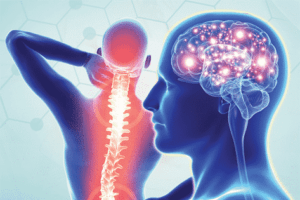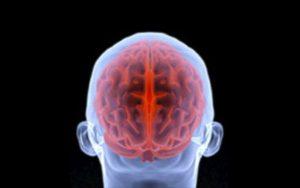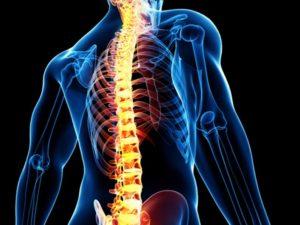Dr. Rao’s Hospital offers the best neurotrauma treatment in Andhra Pradesh. When you choose Dr. Rao’s Hospital for neurotrauma treatment, you get access to experts who focus on complete care for the most traumatic injuries.
Dr. Rao’s Hospital is the best neurology hospital in Guntur as it is the only hospital with FDA-approved critical care equipment in India. Furthermore, it is the first hospital in India to offer all the neuro-related treatments under one roof.
Our Medical Head, Dr. Mohana Rao Patibandla, is an excellent neurosurgeon in Andhra Pradesh. He is among the few neurosurgeons who are excellent in neurosciences and trained in the USA.
Now let us move on to understanding more about neurotrauma, its symptoms, and treatments.
What is Neurotrauma?
Neurotrauma is a sudden injury that involves the nerves, brain, or spine. The injuries usually include concussions, traumatic brain injuries (TBI), spinal column fractures, skull fractures, and spinal cord injuries (SCI).
Dr. Rao’s Hospital has a team of neurosurgeons that are particularly equipped and trained to diagnose and treat every Neurotrauma Treatment in Andhra Pradesh. So, now let us understand the different forms of neurotrauma.

1. Head trauma
Head trauma damages your head, from a small bump over the skull to severe brain trauma. It often occurs from being hit over the skull or head. It can also happen if you fall or if there is a sudden deceleration-acceleration. Head trauma can cause your brain cells to be dysfunctional. The injury’s extent and how long it will last is based on how badly you were hurt.

We treat the following forms of head trauma:
- Concussion
- Mild TBI
- Moderate TBI
- Depressed skull fracture
- Craniofacial trauma
- Epidural hematoma
- Acute subdural hematoma
- Subacute and chronic subdural hematoma
- Traumatic subarachnoid haemorrhage
- Severe TBI (typically involves a coma)
- Penetrating brain injury·
- Traumatic intracerebral haemorrhage/brain contusion
- Traumatic cerebrospinal fluid leak
- Traumatic pseudoaneurysm
- Blunt cerebrovascular injury
2. Spine trauma
You can also get an injury to your spinal column (thoracic, cervical, or lumbosacral spine) or spinal cord because of a fall, collisions, or car accident.
As with head injuries, there are several forms of spine trauma, which differ in severity. Based on what occurred, you may become paralyzed or weak. We routinely treat such forms of spine trauma:

- Spinal cord injury
- Craniocervical spine injury
- Cervical spine injury
- Thoracic spine injury
- Compression (anterior wedge) fracture
- Burst fracture
- Chance fracture
- Fracture-dislocation
- Traumatic pars defect (spondylolysis)
- Traumatic spondylolisthesis
- Lumbosacral spine injury
- Atlanto-occipital dissociation
- Jefferson (C1) fracture
- Hangman’s (C2) fracture
- Hyperflexion injury
- Hyperextension injury
- Odontoid (dens) fracture
- Traumatic central cord syndrome
- Perched/jumped facets
- Traumatic intervertebral disc herniation
- Complex sacropelvic injury
- Compression injury
- Distraction injury
- Spinal ligamentous injury
How do we diagnose neurotrauma?
Neurotrauma can happen on its own or with other bodily injuries. Many individuals who face severe injury to their spine or head and seek for Neurotrauma Treatment in Andhra Pradesh arrive in our hospital through the emergency room (ER) and do not require appointments.
When you arrive in our ER, we evaluate you right away for spine or head injury. We use a brain scan to provide us with a proper view of your injuries. Basically, we use a computed tomography (called CAT or CT) scan of the spine or head, or instead, we may use magnetic resonance imaging (MRI).
What are the neurotrauma treatments at Dr. Rao’s Hospital?
We treat spine and head injuries based on various factors involving injury form and how severe it is. Mild injuries may only need careful observation. Highly severe trauma may call for procedure. Specific forms of injuries require surgery, even if they are not severe.
We also provide neuropsychological therapy, physical therapy, speech therapy, occupational therapy, and rehabilitation medications, as per your needs.
We perform the following surgical procedures:
- External ventricular drain placement
- Intracranial pressure monitoring
- Intracranial multimodality monitoring
- Lumbar drain placement
- Bedside subdural evacuating port system placement
- Spinal decompression
- Instrumented spine stabilization
- Minimally invasive spine instrumentation
- Spinal fusion
- Burrhole for subacute/chronic subdural hematoma
- Craniotomy for the evacuation of the hematoma
- Decompressive craniectomy
- Cranioplasty
- Elevation of depressed skull fracture
- Cranialization of the frontal sinus
- Complex craniofacial repair
- Traumatic cerebral spinal fluid leak repair
- External bracing for spine injury
- Halo stabilization
- Closed reduction/traction for spine fracture
- Open reduction/treatment for spine fracture
- Sacropelvic spine instrumentation and fusion
- Kyphoplasty/vertebroplasty
Many people who seek Neurotrauma Treatment in Andhra Pradesh with mild traumatic injuries to the spine or head become well, and many completely recover. Sometimes, though, even after a mild injury such as a concussion, you may have signs that do not disappear. If this occurs, we will continue working with you.
Why choose Dr. Rao’s Hospital for neurotrauma treatment?
Spinal cord and brain injuries require 24-hour monitoring and care. We have a neuroscience intensive care unit (ICU) designed only for people with these forms of injuries. We offer:
- Specialized staff: We have specialists who care for ICU patients having neurological injuries. We ensure to provide the most advanced care with a team of respiratory therapists, nurses, and other doctors.
- Advanced technology: Our care team utilizes sophisticated tools to observe oxygen to your heart and brain, breathing rate, and other important functions. This helps our specialists always track your condition so they can make the best treatment decisions for you.
- Support for families: We understand that it is often a shock to have a loved person admitted to the ICU. Our care team keeps you informed and provides emotional help and resources for your family and you.
We are well-equipped to give overall care for the most severe traumatic injuries — involving prevention, rehabilitation, and recovery. Our neurosurgery team functions closely with other trauma team doctors to give effective, fast care.
At Dr. Rao’s Hospital, we have rehabilitative therapies and cutting-edge technologies for providing the best neurotrauma treatment in Andhra Pradesh.
We understand that it is comforting to learn that your hospital has the resources and experience to provide you with the best care possible for lifesaving treatment.
Frequently Asked Questions:
What is neurotrauma ICU?
The Neurotrauma Critical Care Unit provides multidisciplinary care to critically ill patients who have sustained primarily central nervous system injury and may have other associated injuries. The Unit has the capacity for 12 patients; each serviced in separate glass enclosed cubicles.
What is the best treatment for traumatic brain injury?
Mild traumatic brain injuries usually require no treatment other than rest and over-the-counter pain relievers to treat a headache. However, a person with a mild traumatic brain injury usually needs to be monitored closely at home for any persistent, worsening or new symptoms.
How long does it take to walk after a brain injury?
Most people with TBI are able to walk independently within three months of injury. Although most can return to walking, many continue to have problems with moving quickly and with balance needed to return to high-level activities such as running or sports.
Enquiry Now

